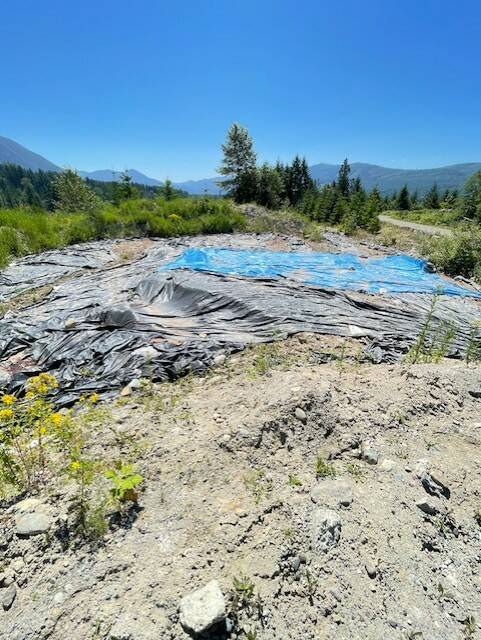In 2008, the Snoqualmie Valley Record reported that the construction materials company Glacier Northwest had “learned from past problems” and would not affect residents or groundwater when blasting for rock.
Nearly 16 years later, a recent employee of Glacier Northwest, a subsidiary of CalPortland, says the company hasn’t learned a thing.
Todd Cope managed the Snoqualmie Ready Mix and Aggregate Plant, 5601 396th Drive SE, Snoqualmie, until Feb. 7. He claims his employer pressured him into resigning after he voiced concerns about permit violations and potential environmental impacts at the site.
Cope said his employer requested he report to CalPortland’s corporate Federal Way office, where several members of leadership gave him an ultimatum.
“I was given one of two options: We can open up an investigation into you, and whatever we come away from that investigation, we can pretty much discredit you in the industry with that information, or you can resign,” Cope said. “I just thought right then and there, I really don’t want to be a part of this.”
As of the time of publication, the Record had not received a response from CalPortland in a request for comment.
Permitting for the Snoqualmie site
At the Snoqualmie Ready Mix and Aggregate Plant, CalPortland mines sand and gravel to be used as aggregate in construction products like concrete. In King County, the excavation of gravel at these sites is regulated by grading permits in an attempt to minimize the impact on the environment, including nearby groundwater.
Cope said the conditions of the permit require that, after each shot (controlled explosion), a geotechnical engineer inspects the walls of the blast area to ensure it has not impacted an aquifer.
Historically, Cope said, the Snoqualmie site has been inspected by Associated Earth Sciences Inc. of Kirkland, but when Cope requested records of past inspections, he was told they didn’t have any past 2017.
“So there have been several shots done up there without looking at whether we poked a hole in an aquifer or not,” he said.
The Snoqualmie Ready Mix and Aggregate Plant also has a Sand & Gravel General Permit from the Washington State Department of Ecology. According to the department’s website, the site has had 43 permit violations or triggers since 1995.
Another issue Cope had with the site was the management of waste product. It’s a condition of the site’s permitting not to put a high-pH waste product on a pervious surface, but he says the routine process at CalPortland is to wash out the slurry — a cement mixture with chemical additives — through a system that ends in an unlined pit.
Cope said they were also running out of space for the waste.
“As the former site superintendent, it reached a point in December 2024 that we could no longer deal with the waste product on site, even if it meant we continued to manage it in the non-compliant manner of past practices,” Cope said in an email to King County stormwater management.
Cope said he had been having discussions about waste management with a CalPortland environmental manager since he started with the company in 2022.
The day before Cope says he was asked to resign, he told the environmental manager “we can no longer just stick our heads in the sand and pretend it doesn’t exist.”
“I think that that might have been the beginning of the end for me,” he said.
Internal and external investigations
On March 5, Cope made a report to the Washington State Department of Ecology regarding the improper discarding of construction material. The report was referred to the department’s Water Quality program, as well as King County stormwater management. The Department of Ecology has also notified Public Health Services of King County, the Department of Natural Resources and a resident who neighbors the site.
The report remains active, according to Brittny Goodsell, spokesperson for the Department of Ecology’s Southwest Region Office. Investigation timelines are case-by-case, Goodsell said, and it’s impossible to know how long this one will take.
“Investigations may involve a range of activities, from coordinating with other state or local regulatory agencies to performing on-site inspections and interviews,” she said.
If the Department of Ecology does find water quality permit violations, it has a two-year period to bring enforcement actions against CalPortland.
Ultimately, Cope said, he wants to see CalPortland adhere to its permit regulations and take care of the water for its neighbors.
“It doesn’t take much to do the right thing,” he said. “Those neighbors deserve to have that company follow that permit because it won’t take much if they do contaminate the source or compromise that source of water for those people in that area.”


